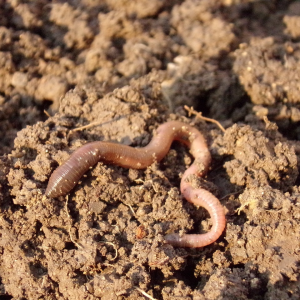
The importance of soil health for producing food and the complexity of life found within soil are increasingly visible in food systems debates. This paper investigates how the diversity of microbes within soils may be affected by warming climates.
Seven years of soil experiments were conducted on prairies in Oklahoma, in which soils were subject to various levels of artificial heating, precipitation and removal of plant matter. The greatest effect was found from warming. Soil samples from areas warmed to 3 °C above ambient temperature showed a decrease in soil moisture (1.5%, larger than the change in moisture seen with altered precipitation). Warming reduced bacterial richness (i.e. species diversity) by 9.6%, reduced fungal richness by 14.5%, and reduced protistan richness by 7.5%.
The authors conclude that their findings are important for understanding how soils may function as climate change causes warming, and how this may link to broader ecosystems functioning.
Abstract
Anthropogenic climate change threatens ecosystem functioning. Soil biodiversity is essential for maintaining the health of terrestrial systems, but how climate change affects the richness and abundance of soil microbial communities remains unresolved. We examined the effects of warming, altered precipitation and annual biomass removal on grassland soil bacterial, fungal and protistan communities over 7 years to determine how these representative climate changes impact microbial biodiversity and ecosystem functioning. We show that experimental warming and the concomitant reductions in soil moisture play a predominant role in shaping microbial biodiversity by decreasing the richness of bacteria (9.6%), fungi (14.5%) and protists (7.5%). Our results also show positive associations between microbial biodiversity and ecosystem functional processes, such as gross primary productivity and microbial biomass. We conclude that the detrimental effects of biodiversity loss might be more severe in a warmer world.
Reference
Wu, L., Zhang, Y., Guo, X., Ning, D., Zhou, X., Feng, J., Yuan, M.M., Liu, S., Guo, J., Gao, Z. and Ma, J., 2022. Reduction of microbial diversity in grassland soil is driven by long-term climate warming. Nature Microbiology, pp.1-9.
Read the full paper here. See also the TABLE explainer Impacts of climatic and environmental change on food systems.







Post a new comment »